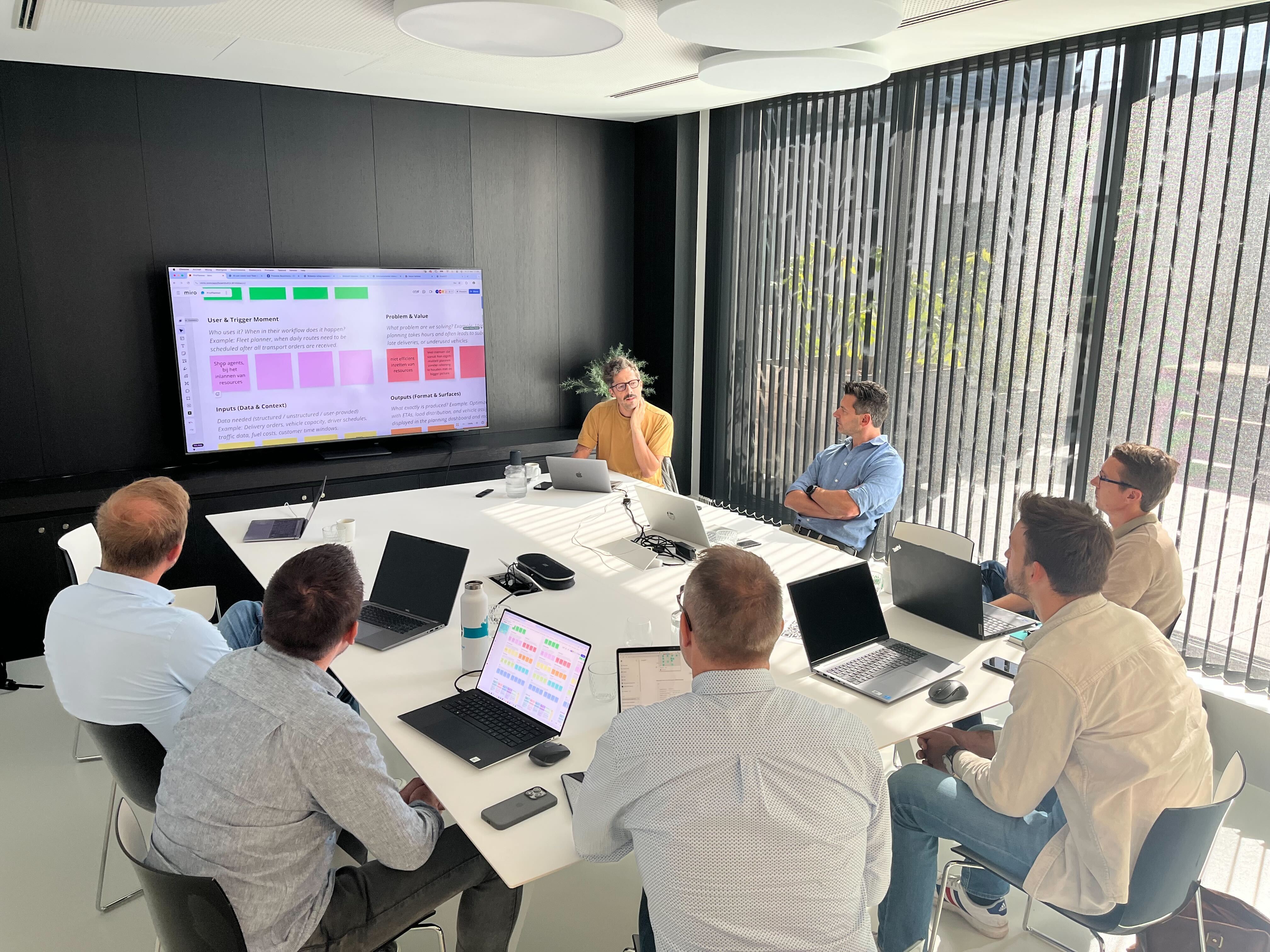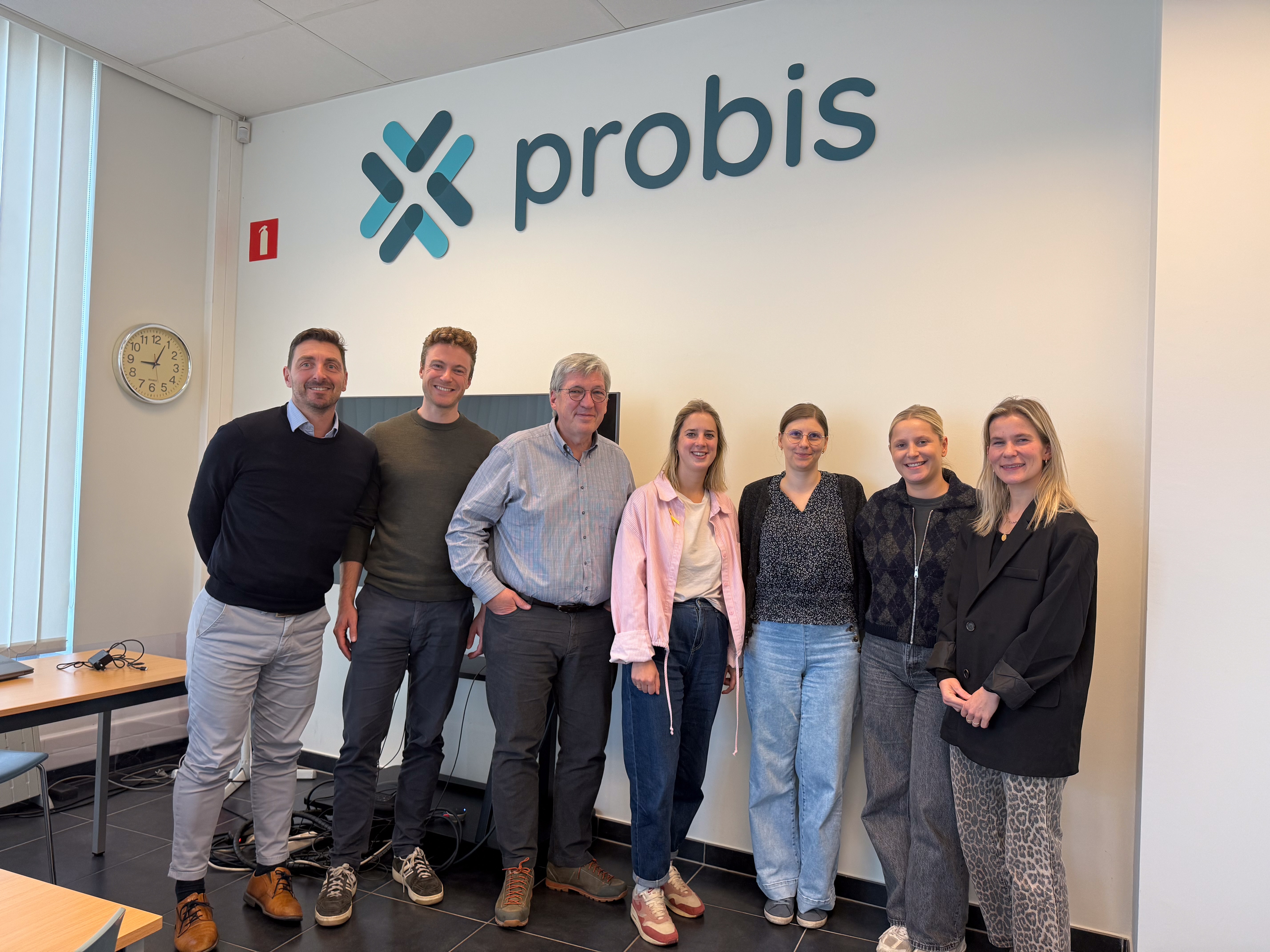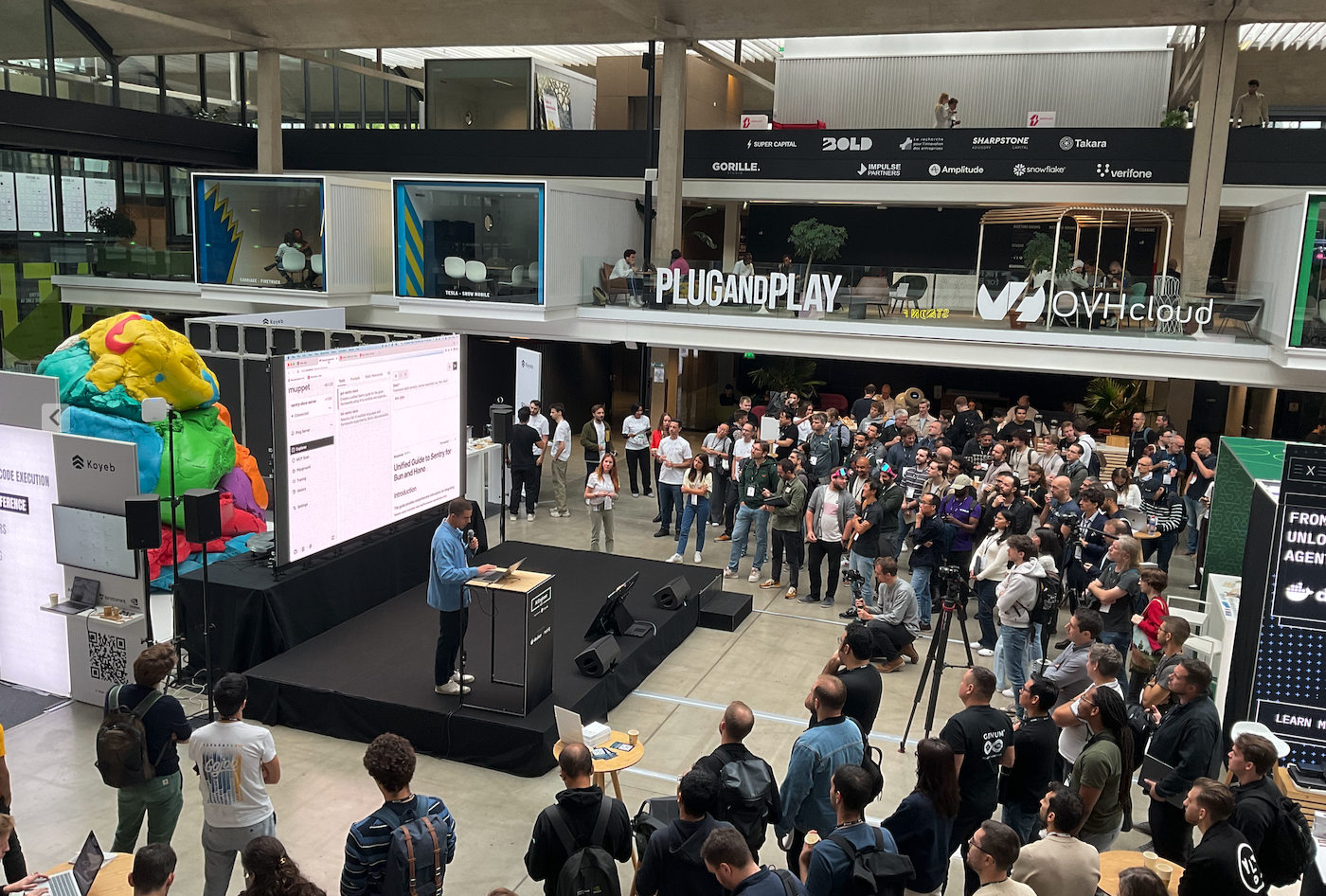In today’s Belgian real estate landscape, where billions of euros in property assets require constant oversight and tenant satisfaction directly impacts property values, syndici (property managers) have become the unsung heroes keeping buildings operational.They serve as the crucial link between Verenigingen van Mede-Eigenaars (VME) (associations of co-owners), property owners, and tenants ensuring co-ownership rules are respected, legal deadlines are met, and buildings run smoothly and profitably.
From sunrise to well past sunset, property managers juggle an overwhelming array of responsibilities, many dictated by Belgian law:
- Tenant Communication Management: Responding to a flood of tenant emails, owner inquiries, payment reminders, service requests, and complaints across multiple channels while ensuring consistent, legally correct responses.
- Meeting & Legal Reporting: Organising the general assembly of co-owners, managing meeting convocations, tracking action items, and producing legally required Notulen Algemene Vergadering (procès-verbal de l’Assemblée Générale: official meeting minutes). Compiling the annual accounts, balance sheet, individual expense statement, budget, and debt certificates for notaries ensuring all reporting meets Belgian Civil Code and BIV standards.
- Document Processing: Extracting key information from rental agreements, property inspection reports, maintenance certificates, and permits, then filing them in compliance with Belgian retention rules (7–10 years).
- Data Consolidation: Gathering operational information from scattered sources, maintenance logs, inspection certificates for lifts and boilers, EPC-certificaten (energy performance certificates), etc, into a coherent property file (VME-dossier).
- Compliance Monitoring: Tracking ESG and safety requirements, from EPB/EPC (energy performance regulations and certificates) norms to asbestattesten (asbestos certificates), fire safety checks, and elevator inspections, ensuring all documentation stays up to date for inspections, owner access rights, and legal obligations.
- Service Request Routing: Directing maintenance issues, vendor coordination, and urgent interventions to the correct party, with traceable follow-up for insurance or legal purposes.
What’s Holding Belgian Property Managers Back?
The core problem is simple: property managers have limited bandwidth, yet face heavy legal, administrative, and operational burdens.
Manual workflows create bottlenecks that directly risk non-compliance with obligations under the Belgian Civil Code, regional housing decrees, and safety regulations.
Root Causes:
- Fragmented Communication Infrastructure: Disconnected channels mean tenant and owner requests aren’t centrally tracked, risking missed legal deadlines.
- Absence of Meeting & Reporting Automation: Manual handling of oproepingen (convocations), proxies, quorum calculations, notulen (minutes) preparation, and financial reporting makes compliance time-consuming and error-prone.
- Disconnected Data Architecture: Information is siloed, slowing responses to legal information requests (e.g., legal information package for a property sale).
- Manual-Only Service Request Workflows: Without automated routing, every herstellingsverzoek (repair request) is a time sink.
- Legacy Compliance & Reporting Methods: Annual accounts, maintenance reports, and compliance certificates are compiled manually, increasing the risk of errors or late submissions.
Solution: AI Agents for Belgian Property Management
AI agents offer a modular, scalable way to automate these tasks without losing the oversight required by Belgian law.
Each agent executes a specific process reliably, transparently, and with full traceability for audits or owner challenges.
1. Automated Meeting & Owner Reporting
Handles the entire process of organising co-owners’ meetings (Algemene Vergaderingen / Assemblées Générales) and preparing owner reports.
Core Capabilities:
- Prepares and sends meeting convocations, including agenda and attachments like jaarrekening (annual accounts) and begroting (budget).
- Registers attendance and proxies.
- Produces compliant Notulen Algemene Vergadering (procès-verbal de l’Assemblée Générale) from the meeting notes or meeting transcription with voting results, decisions, and action points.
- Compiles and formats annual accounts, balance sheets, individual expense statements, and reserve fund overviews according to BIV and Civil Code requirements.
- Archives all reports for the legally required retention period.
- Generates on-demand informatiepakketten (information packages) for notaries during property sales.
Agents Collaboration:
- Reporting Agent: Automates meeting minutes, financial reports, and owner communications in compliance with Belgian law.
- Observability Agent: Validates accuracy, completeness, and timely delivery of all reports.
2. Tenant Communication Assistant
A multilingual (Dutch/French) assistant provides instant, answering legal questions, EPC obligations, rental deposit, inspection report and insurance coverage. Also, the assistant routes repair requests to the right vendor with a timestamped record.
Agents Collaboration:
- Engagement Agent: First-line tenant interaction, collects feedback.
- Routing Agent: Classifies and dispatches service requests.
- Monitoring Agent: Tracks unresolved issues.
- Observability Agent: Optimises communication processes.
3. Data Consolidation
Creating a single, up-to-date digital file for each property or co-ownership (digitaal VME-dossier) that brings together all legal, technical, and financial information.
This includes the owner register, deed of co-ownership, house rules, maintenance records, inspection certificates, insurance policies, and cadastral data. All information will be easy to find and ready to share with owners, notaries, or authorities when needed.
Agents Collaboration:
- Data Consolidation Agent: Centralises data from internal and external sources.
- Document Extraction Agent: Digitises and tags key contractual information.
- Observability Agent: Ensures data completeness and accuracy.
4. ESG and Compliance Tracking
Monitoring all building-related obligations linked to environmental, safety, and governance requirements, providing alerts for upcoming deadlines and producing reports showing full compliance with Belgian regulations.
This includes keeping track of EPC expiry dates, lift inspections, boiler maintenance, fire safety checks, asbestos certification, and other legal obligations.
Agents Collaboration:
- ESG Compliance Agent: Monitors legal deadlines and gaps.
- Data Consolidation Agent: Integrates ESG-related documents.
- Reporting Agent: Produces legally compliant ESG reports.
5. Proactive Risk Management
Monitoring KPIs and maintenance patterns to predict issues, e.g., scheduling risicoanalyses (risk analyses) for lifts before the 15-year deadline, flagging recurring boiler faults, or highlighting potential non-compliance with EPC rental thresholds for 2030.
Agents Collaboration:
- Monitoring Agent: Tracks risk indicators.
- Data Consolidation Agent: Supplies historical and real-time data.
- Observability Agent: Measures intervention effectiveness.
6. Document Processing Automation
Digitising incoming documents, keuringattesten (inspection certificates), insurance policies, and contracts tags them, and files them in the correct VME-archief (co-ownership archive) section. Monitors retention periods and prepares archives for transfer when the syndicus (property manager) changes.
Agents Collaboration:
- Document Extraction Agent: Captures and structures data from any document type.
- Data Consolidation Agent: Links extracted data to the relevant property record.
Agents overview:
The Outcome: Scalable Oversight and Smart Decision-Making
For Property Managers
- A significant reduction in repetitive administrative work, freeing time for strategic and value-adding activities.
- Real-time visibility into property operations, with alerts for approaching legal deadlines and maintenance needs.
- Greater capacity to respond quickly to tenant requests, market developments, and proactive maintenance requirements.
For Property Owners
- Clear, accurate insight into property performance, risk management, and ESG compliance status.
- Confidence that legal obligations are met without sacrificing service quality.
- Stronger alignment between building operations and long-term investment strategies, backed by actionable data.
For Tenants
- Faster, more consistent service with clear communication and transparent follow-up on issues.
- Reduced uncertainty thanks to timely updates and easy access to relevant information.
- A better living experience through proactive, well-managed property operations.
The Bottom Line
This transformation is not about replacing human expertise; it’s about expanding the capacity to meet Belgian legal and operational requirements while improving service for all stakeholders. By streamlining workflows, ensuring compliance, and consolidating essential information, property managers can make faster, better-informed decisions and focus on what truly matters: delivering value to owners, stability to tenants, and sustainable growth for their portfolio.






.png)











